IOS organises one-day national conference on “India and G20 Summit: Setting the agenda for Inclusive Future”
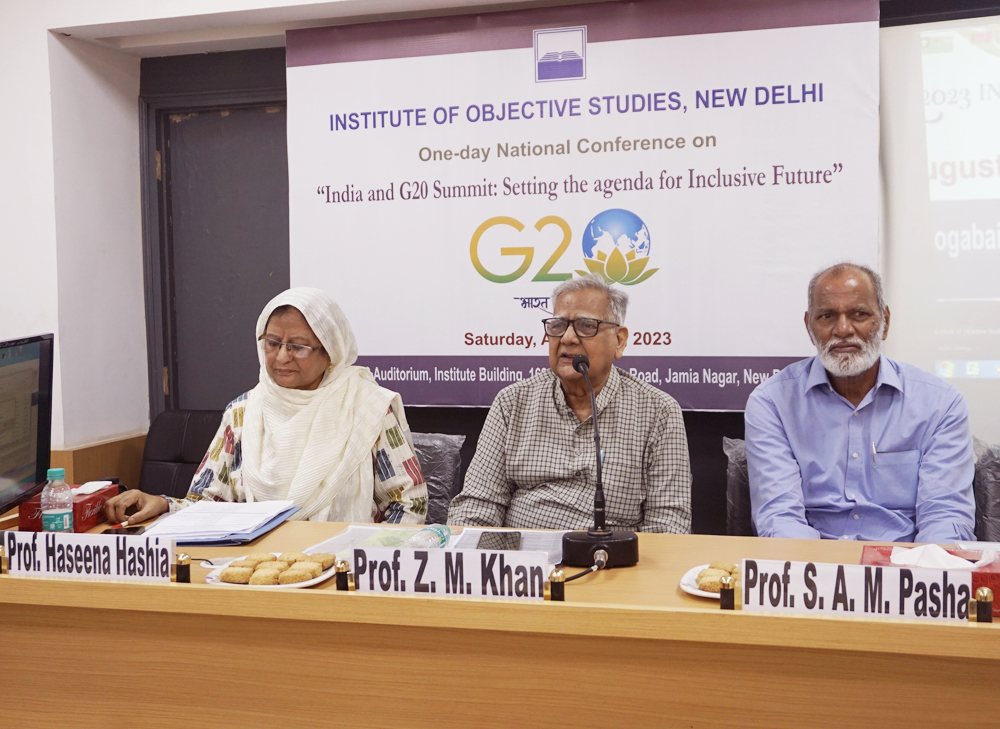
IOS organises one-day national conference on “India and G20 Summit: Setting the agenda for Inclusive Future”
New Delhi: A one-day national conference on ‘India and G20: Setting the agenda for inclusive future’, was organised by the Institute of Objective Studies in hybrid mode on August 19, 2023.
Inaugural Session
The inaugural session began with the recitation of a Quranic Verse by Maulana Athar Husain Nadwi of Urdu section of the Institute.
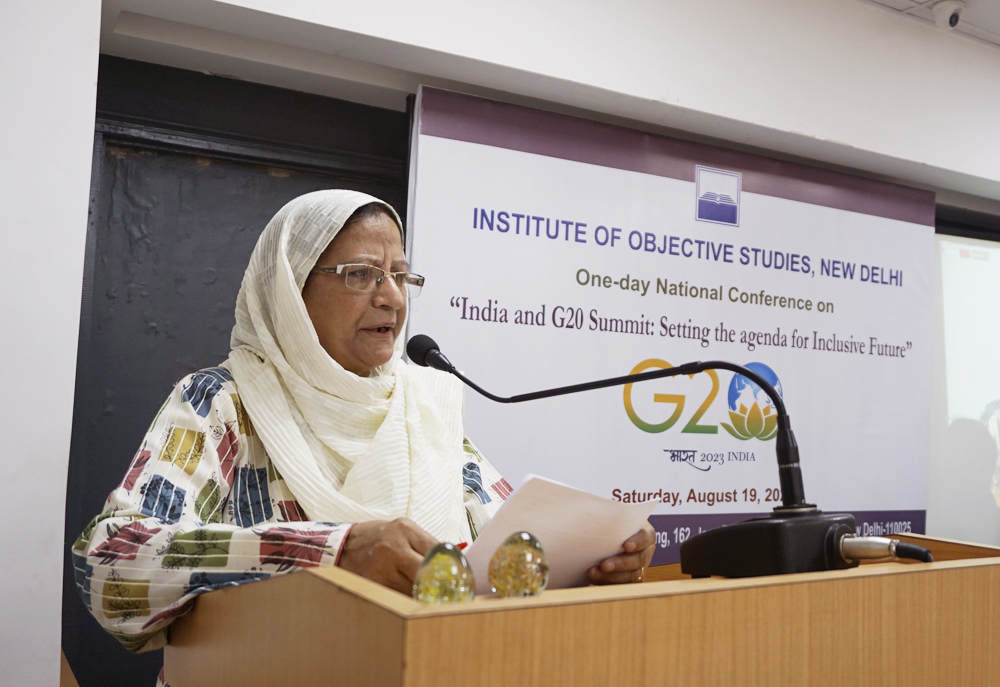
Assistant secretary general of the IOS, Prof. Haseena Hashia, who introduced the theme, said that the summit was a troika at the G-20 because the member holding the rotator presidency every year worked together with its predecessor and the successor, to ensure continuity of the agenda. It was a troika in the sense that the group represented past, present and the future. G20 or Group of 20 was an intergovernmental forum comprising 19 countries and European Union (EU). It worked to address major issues related to the global economy, such as international financial stability, climate change mitigation and sustainable development. She held that the G20 was composed of most of the world’s largest economies, finance ministries, including both industrialised and developing nations. It accounted for around 80 percent of gross word product (GWP), 75% of international trade, two-thirds of the global population and 60 percent of the world’s land area. India’s G20 Sherpa, Amitabh Kant, would lead discussions with the G20 Troika comprising India, Indonesia and Brazil. Sherpa meetings had been held in several cities of India. Vasudev Kutumbkam – “One Earth, One Family, One Future” had found resonance across the world because of its encompassing, inclusive message, capturing the diverse global changes of the day, she observed.
Prof. Hashia pointed out that the Sherpas took stock of the progress made in various G20 Sherpa track working groups of the Digital Economy, Heath, Education, Tourism, Culture, Agriculture, Trade and Investment, Employment and Anti-corruption. Delegates at these meetings highlighted the need for women’s leadership. They also emphasised the importance of accelerated efforts to return to a path of resilient growth and recovery, she added.
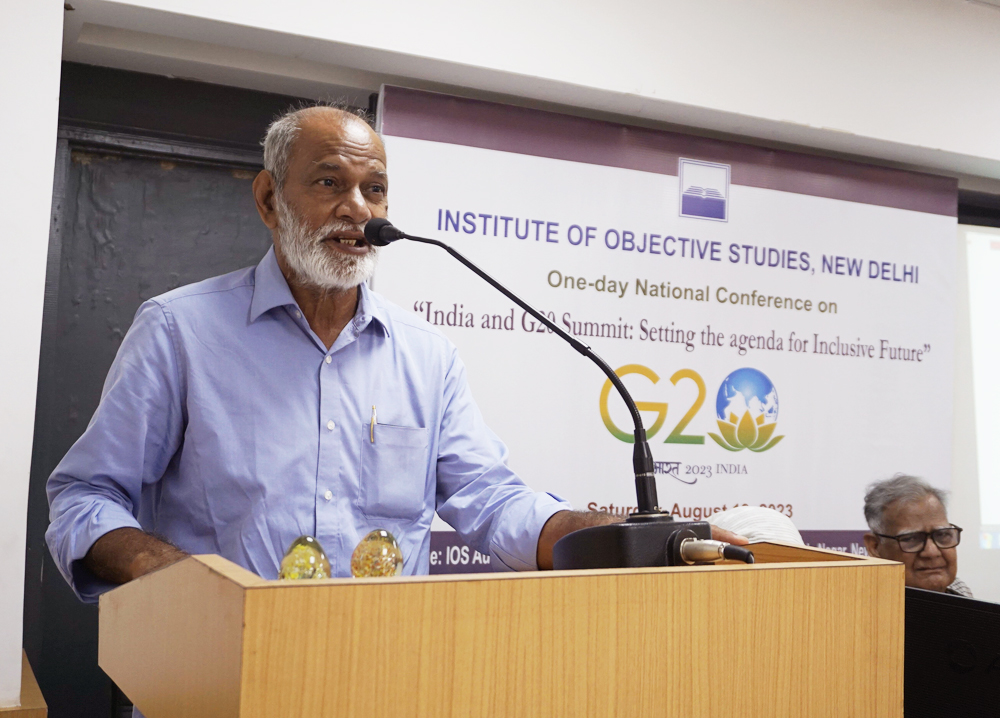
Inaugurating the conference, political scientist and former head of the department of political science, Jamia Millia Islamia, Prof. S.A.M. Pasha remarked that the issue was ever evolving. The G-7 originated from ad-hoc gathering of foreign ministers of industrialised countries in 1973 and had since become a formal, high-profile venue for discussing and coordinating solutions to major global issues, especially in the areas of trade, security, economics and climate change. Each member’s head of government or State, along with the European Union’s Commission President and European Council President met annually at the G-7 Summit. Representatives of other states and international organisations were often invited as guests. He observed that the United Nations Organisation was most important, though there were a plethora of organisations that were not less important. Agenda for G-20 was very expansive. It ranged from global health to inclusive growth, food security, green development addressing climate change, debt restructuring through the G-20 common framework for debt, strategy for regulation of global crypto currencies, addressing pressing economic and social issues, promoting global economic stability by advocating policies that fostered sustainable economic growth and reducing inequality. This also included addressing global economic imbalances, promoting financial stability and sustainable development. Priorities would include renewable energy, water conservation, clean air and sustainable urban development. Besides, focus would be on digital governance, digital inclusion and innovation for sustainable development, he noted.
Prof. Pasha held that, in addition to world issues, national issues would find place in the discussion at the Summit. Referring to the death due to the Covid-19 pandemic, he said that the figure stood at 40 lakh people which was an extraordinary figure. Politics should be sustainable for sustainable development. But politics denied rule of law as the rule of law was not by the rule of law. Democratic institutions were being systematically violated. Bulldozer rule of law was not possible anywhere in the world. There should be adherence to constitutionalism, rule of law and the politics of inclusion. He said that the German dictator, Adolf Hiller was most powerful and was elected democratically, but later on he became ruthless without having regard to law. He pleaded that politics should be rooted in justice, human rights, multiculturalism and diversity. He questioned if the sustainable development is possible in a situation in which people were fighting ethnically. It was the time people thought collectively. Stressing that the government must give importance to civil society, he said that the development should be inclusive and not exclusive. Referring to the composition of the Lok Sabha, he said that out of the total number of 542 members. 60 percent public representatives had criminal background. Commenting on corruption, he said that it was no longer unethical now as it had been institutionalised.
Prof. Pasha pointed out that the minorities were ignored in several fields. This was so in the political field as well. Several parties did not have a single member from the minority community in parliament. The chaos created during the Covid-19 pandemic also led to a situation in which some people, despite possessing money, could not have access to oxygen. This meant that money was not all important. There should be rule of law, not rule by law. Selective application of law was not permissible and everyone would have to remain within the confines of law. He said that the gravity of the current situation in some parts of the country could be understood by the comment of a high court which described it as ‘ethnic cleansing’. It was perhaps for the first time that a court had to make such a terse comment on the prevailing atmosphere of fear and insecurity. Touching upon the problem of unemployment, he said that the youth accounted for half of the country’s population, but they were without a job. He observed that politics had to be in line with the law. Law had to be supreme and be based on consensus. Big strides had been made in the field of higher education in India, but the country did not figure among the countries with best universities. While best 5-6 universities were located in Israel, Harvard University continued to be the world’s best university for the last 150 years. Harvard earned this reputation because it attracted best talent from across the world. According to an American, if the talent had been properly harnessed, Arabs would have won maximum number of Nobel prizes, he added.
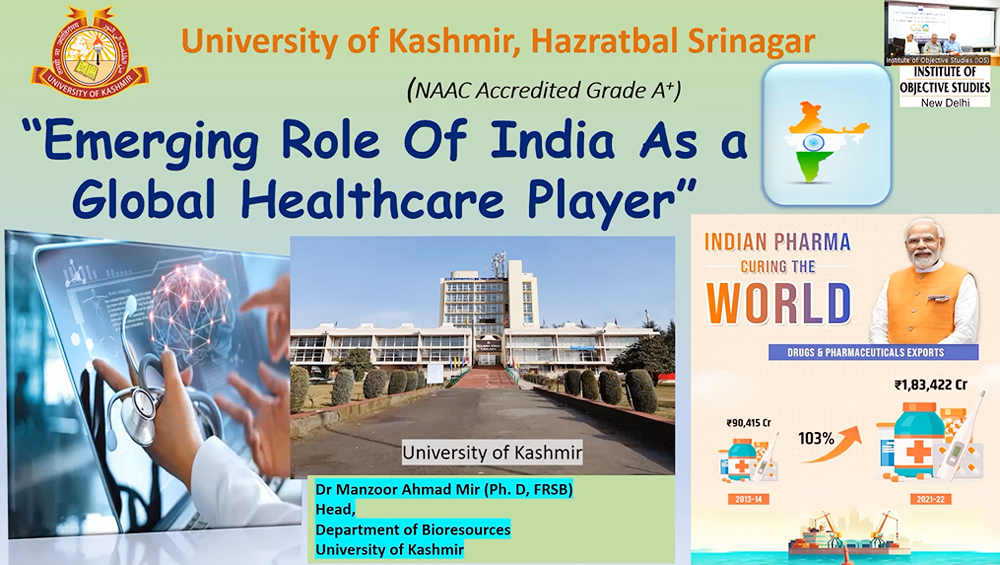
Speaking as the guest of honour, head of the department of biotechnology, University of Kashmir, Prof. Manzoor Ahmad, underlined the emerging role of India as a global health-care player. It was playing its role in the imperatives for healthcare. Many ministries of the government of India were working in the area of healthcare. As many as 38 research institutes were working under the control of CSIR (Council of Scientific and Industrial Research). Besides, there were the ministries of Ayush and Science and Technology were working with the same objectives. Serum Institute of India also provided vaccines to the agencies at cheaper rates. India gave impetus to research and manufacturing of medicines. Thus the country attracted the world’s attention towards this feat. India proved its mettle to the world by playing its role in the global healthcare. He said that the country provided medicines to Africa to fight HIV. Indian medicines were heavy in demand due to their being cheapest in South-East Asia. The country was also the cheap medical tourism destination. Medicines, worth more than Rs. 93 thousand crores were exported to the world and earning foreign exchange. With more than 3000 pharma companies, India became the second largest supplier of medicines to the world after China, he noted.
Prof. Manzoor Ahmad maintained that India earned the reputation of providing low cost medicines. It provided medicines for polio, HIV, TB, besides Covid-19. About 175 countries had been supplied with medicines by India. It was estimated that medicines worth 600 billion dollars would be supplied by India to the world by the year 2025. He said that the country had become home to medical tourism because of better medical services, security, etc. Government of India was also promoting medical tourism. India had also become the hub of multiple medical products. And, in terms of affordability, India was the best medical tourism destination among third world countries. He concluded by saying that India supplied anti-malaria vaccines to the United States of America.
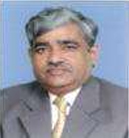
Speaking as the guest of honour, former chairman of Janata Cooperative Bank, Delhi and ex-head of the department of commerce, Jamia Millia Islamia, Prof. Abdul Aziz Ansari, said that India’s presidency of G-20 would strengthen global friendship and international cooperation in different fields. It would also help boost transparent trade practices and work as a bulwark against trade protectionism. He held that the G-20 Summit offered India an opportunity to showcase its technology. Innovation, research and development, etc., were there to boost economy and inclusiveness, he added.
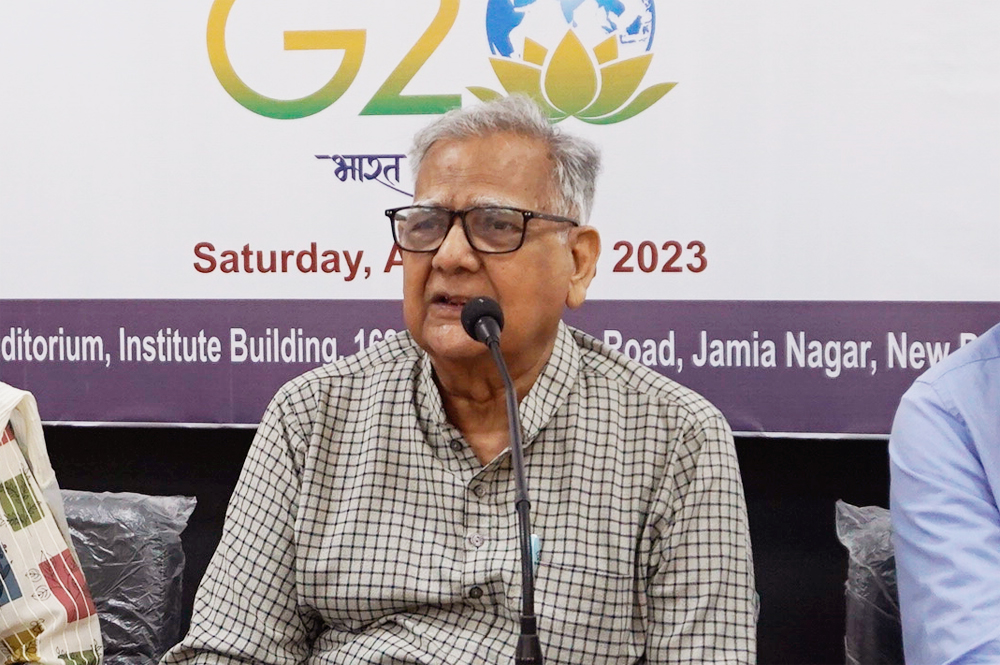
In his presidential remarks, secretary general of the IOS, Prof. Z.M. Khan, held that the concept of cohesiveness, conditioning and living conformed to the Constitution and the teachings of Quran. Everything should be done to increase cohesion. He warned that the attempt being made to provide grist to the propaganda machinery were very dangerous. Both media and the government were working overtime to provide fodder to the propaganda. If the election was meant to collect Hindu votes, then it could prove disastrous for the country. Several organisations and institutions were expressing happiness over the turn of events. Happenings here are being noticed at the international level. This could benefit the marginalised sections. This might in turn benefit Muslims as well. Referring to the Bhagwa brigade’s hypothetical vision for Akhand Bharat, he said that if it happened and Pakistan, Afghanistan and Bangladesh was annexed, the total population of Muslims world go up to 75 crore. Describing the concept of G-20 as good, he noted that it existed in villages too. This found echo in the Constitution as well. Whatever happened in Nuh district of Haryana in the recent past was very dangerous. He called for maintaining a balance.
The inaugural session ended with a vote of thanks extended by Prof. Haseena Hashia.
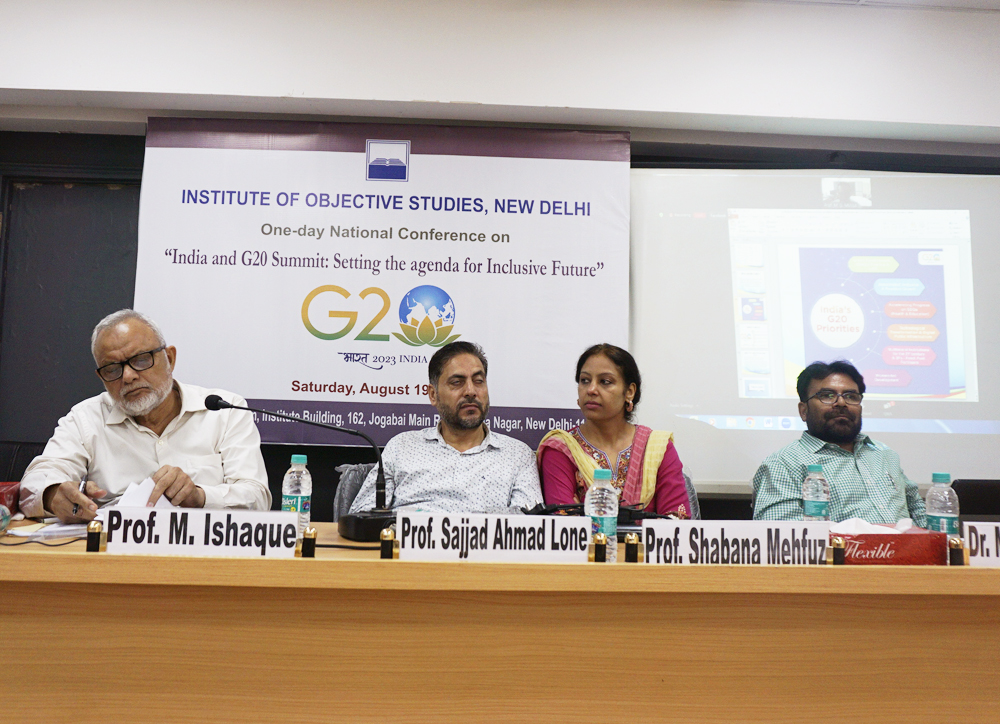
Technical Session-I
The first technical session commenced with the dean, faculty of humanities and languages, JMI, Prof. M. Ishaque being in the chair.
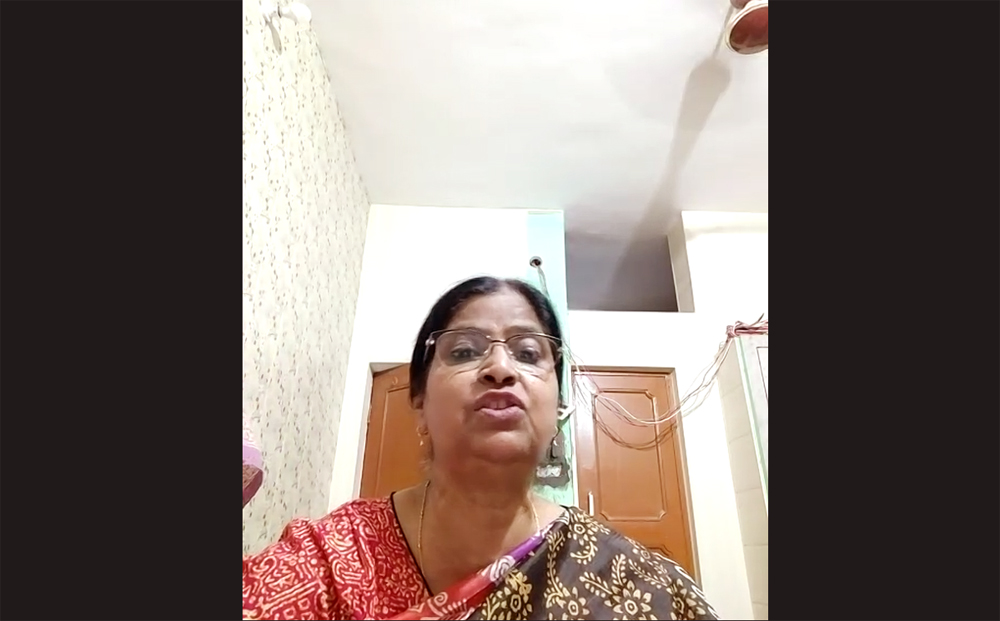
The first speaker was Prof. Nasrin Mujib from the department of education, Aligarh Muslim University. Commenting on the quality of and access to education, she said that several initiatives had been taken by the government to provide education to all. Sarwa Shiksha Abhiyan had been launched to give education to all. Referring to education among Muslims, she noted that drop-out rate among them was highest. She held that rapid expansion of digital technology led to the teaching through on-line classes. E-Pathshala was a part of digital education. But, there was a need for professional development and quality education. Quality of teachers was also important. She said that the government was spending substantial amount of money on education. International cooperation, knowledge sharing and exchange of the model of education in other developing and developed countries could also play a role in educational development of the country. Skill development and partnership with other countries could achieve the goal of digital transformation.
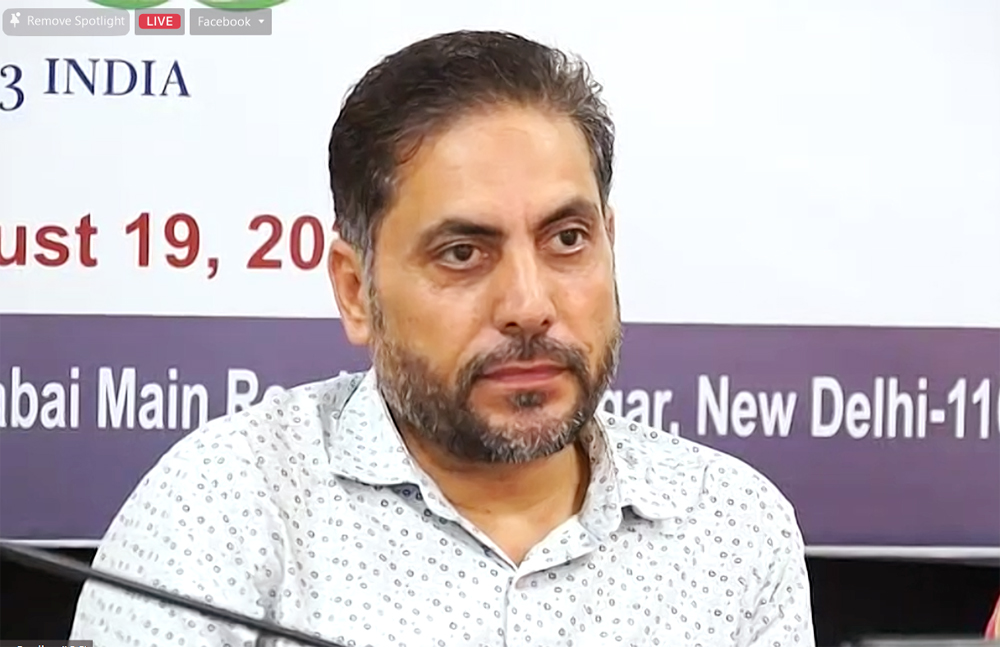
Prof. Nasrin Mujib was followed by Prof. Sajjad Ahmad Lone from the department of Electronics and Communication, faculty of engineering, JMI. He remarked that billions of dollars were spent annually on oil import. He said that semiconductor chip was the substitute for oil. Devices had in-built chips and they consumed little power. They were energy and power efficient. Earlier, mobiles took time to connect with communication device. But now there was inside device. Today, mobiles did not function for more than 4-5 years. But now there were long-lasting machines. Referring to semiconductor revolution, he said that the source of silicon was sand which was sourced from deserts. Chips were substitute for new source power. Consumption of chips in India was increasing but unfortunately the production was zero. It started manufacturing chips in Mohali. A laboratory for the purpose was started in Mohali in 1980. India was importing chips as much as oil, he added.
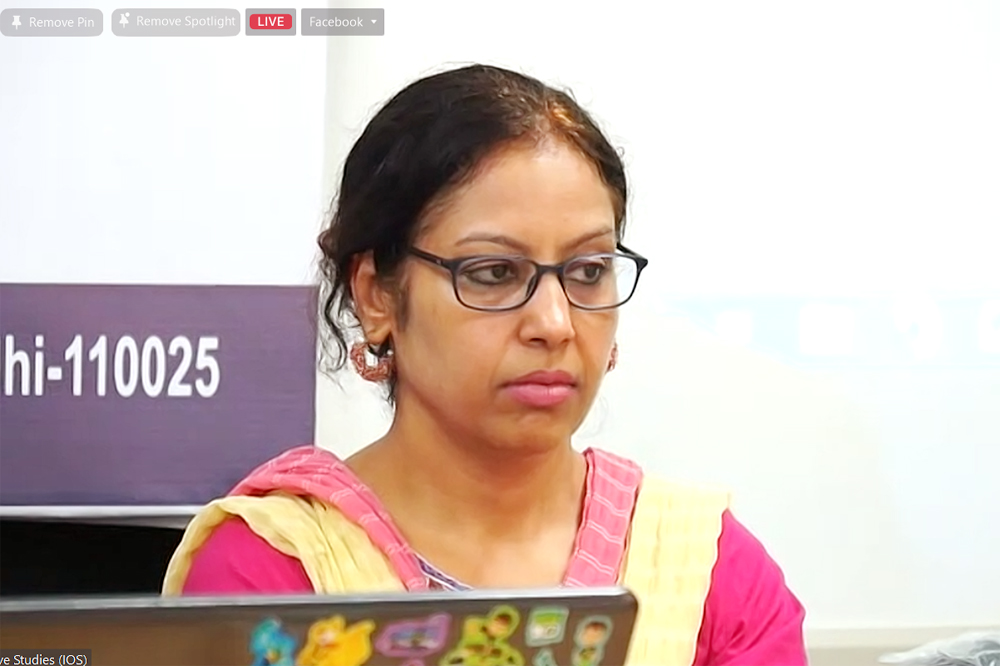
Prof. Shabana Mehfooz of the department of electrical engineering, faculty of engineering, Jamia Millia Islamia said that healthcare was being computed. Healthcare system stood for personal health service being provided to an individual. Services meant personal care, health promotion services, disease prevention, early detection of disease, social and occupational rehabilitation. Referring to digital transformation, she noted that bio-medical data, autonomous robots system integration, cyber security, cloud computing, additive manufacturing, simulation and augmentation were included in it. Major technologies for healthcare were artificial intelligence analysing, health data, IOT and clone computing—shared use of resources. Explaining the cloud computing, she said that this was the model for enabling ubiquitous, convenient and on-demand network access. Defining virtual meeting, she said that it was not present but seemed to be present. She also explained how cloud computing (ICC) was digitising healthcare.
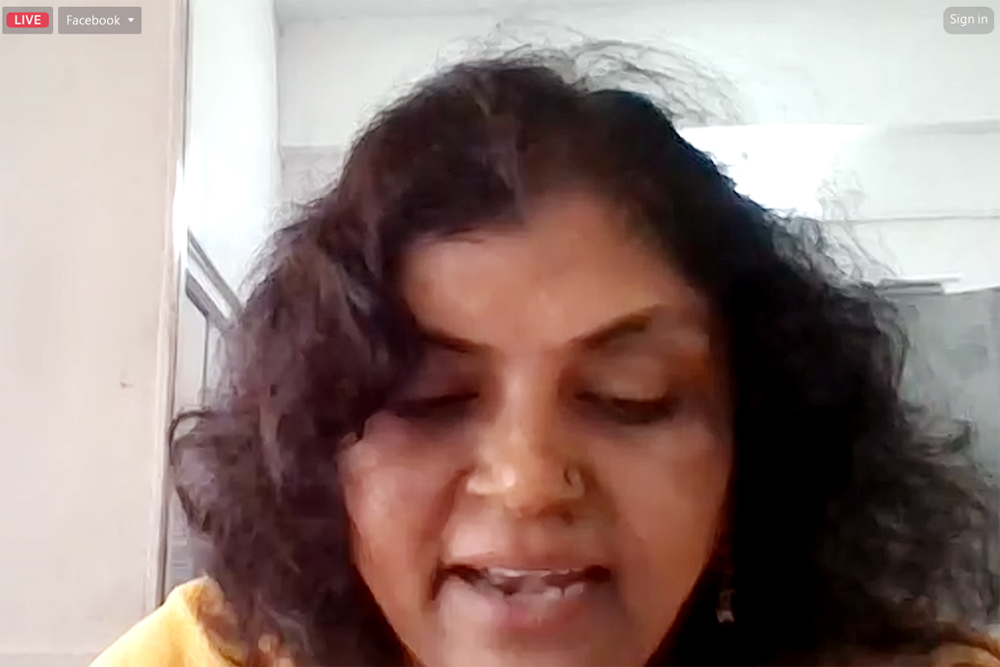
Head of the department of sociology, Abeda Inamdar Sr. Autonomous College, Pune, Prof. Salma Aziz held that socio-cultural diversities in India were suffering from communal divide. If this continued, it would disturb inclusiveness. The concept of inclusiveness was inherent in the Constitution. She said that multiculturalism promoted pluralism. Cultural diversity should be protected. Multiculturalism minimised tension in society. She observed that multiculturalism had been popular in the West since several decades. It started in New York and spread to Australia and Canada later. Roots of Indian multiculturalism were found during Aryan and Saka times. In ‘Discovery of India’, Jawaharlal Nehru, described India as a ‘multicultural state.’ India was a vast country with the diversity of cultures, religions, customs and traditions. ‘Sarva Dharma Sambhav (Respect to all religions) had been the hallmark of India’s unity in diversity. But, of late, identity crisis of various communities came out in the open. Biases and stereo-typed things in the majority community were on the rise. Islamophobia, mob-lynching, Gharwapsi and love Jihad were dominating the political scene, she remarked.
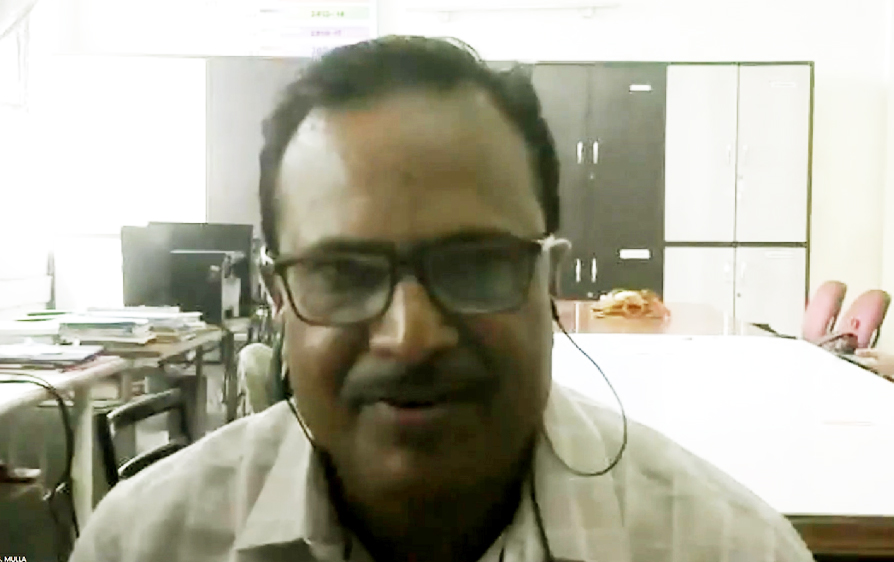
Dean, faculty of commerce, Abeda Inamdar Sr. Autonomous College, Prof. M.G. Mulla, shed light on G-20 structure and said that India’s theme was ‘one earth, one family and one culture’. He also explained India’s G-20 priorities and the agenda. Then he briefly focused on the expectations from the Summit as far as India was concerned.
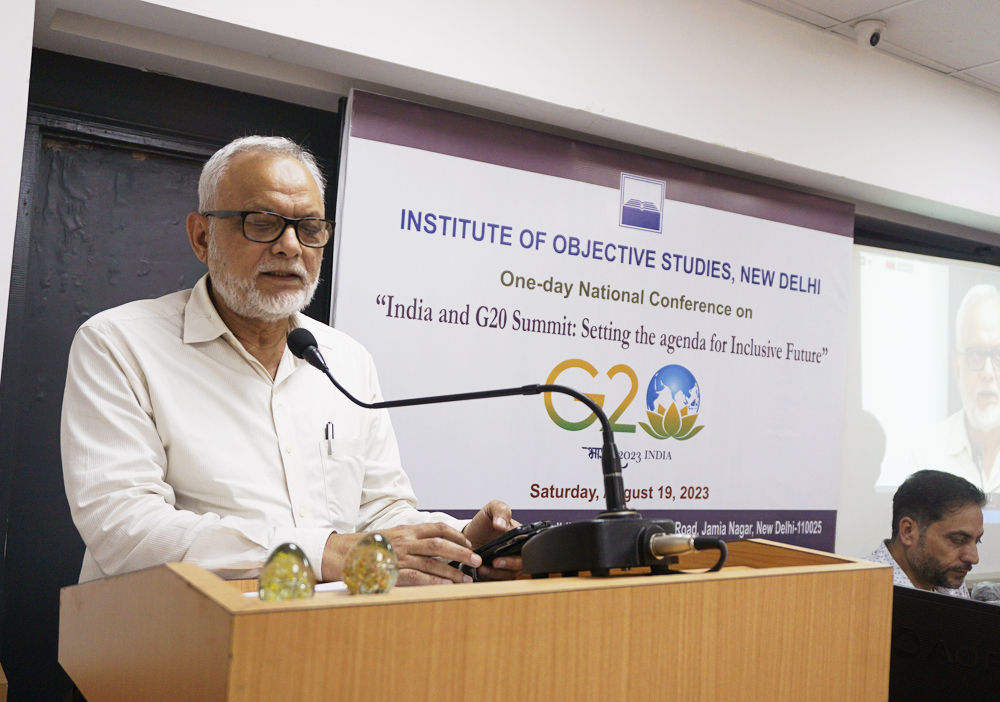
In his concluding remarks, Prof. Ishaque said that if one went into the ancient literature, he would find everything revealing. The Qur’an is the ethical foundation of life and joy. The great Tamil literary figure, Subramania Bharathi, too stood for unity among different communities. Ancient Indian literature was full of cultural and social amity, he added.
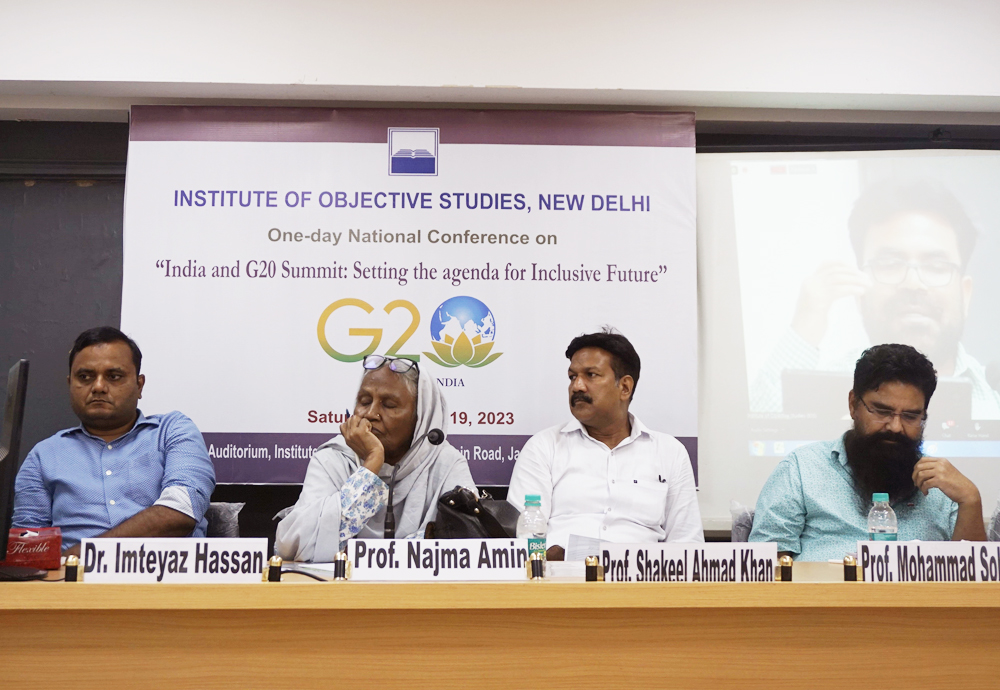
Technical Session-II
Second technical session was chaired by the former head of the department of educational studies, JMI, Prof. Najma Amin.
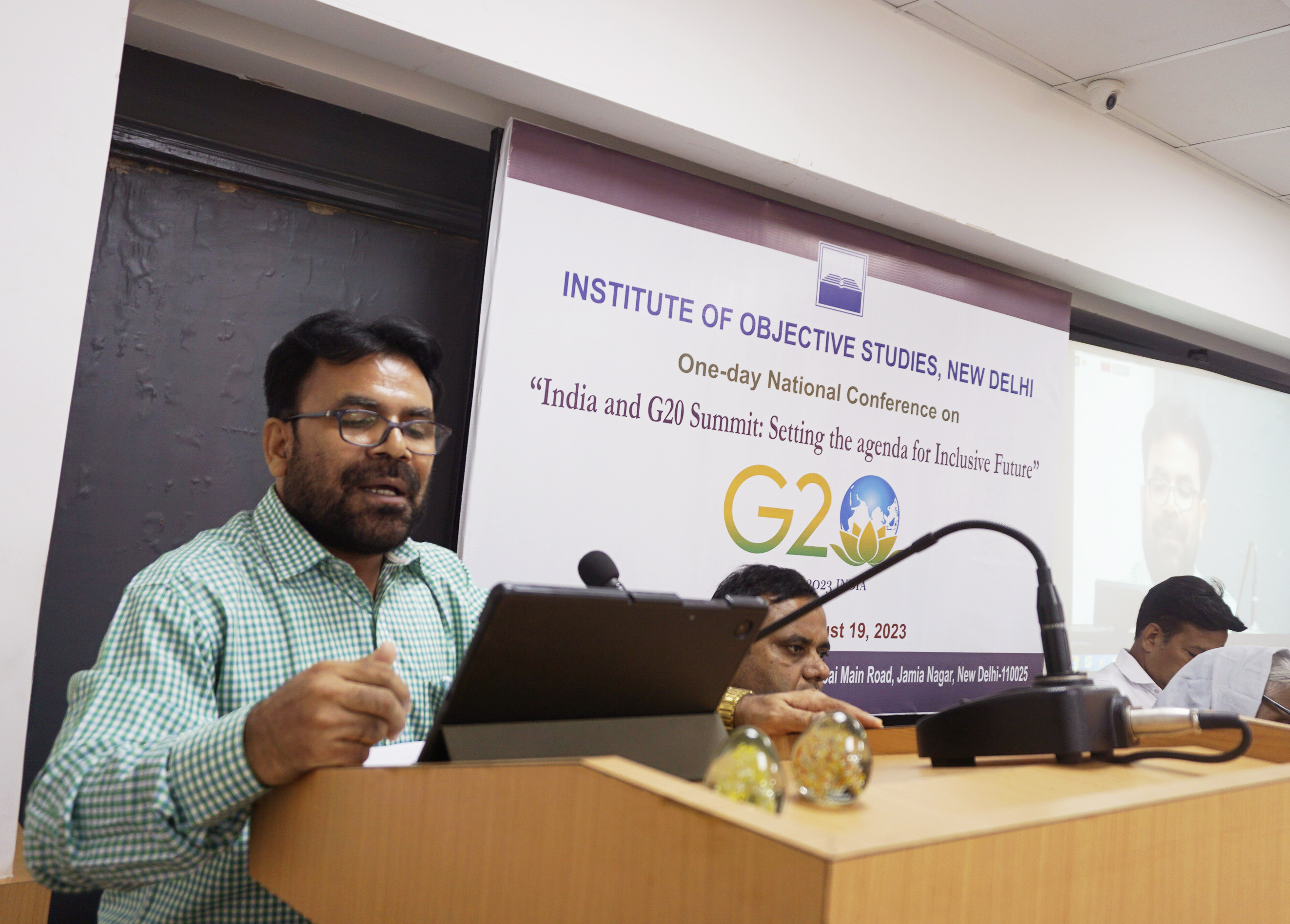
Assistant professor of Arabic and cultural Studies, Jawaharlal Nehru University, Dr. Mohammad Ajmal was the first speaker who explained the cultural perspective of G-20 summit. He said that at the instance of the union minister for culture seminars and exhibitions were organised to celebrate India’s cultural diversity. Efforts were also made for protection and restoration of cultural property. Antiquities found way back to the country from different countries. He emphasised that cultural working groups should be formed to work towards sustainable practice of embracing living heritage. Culture sector had creative identity worth 36 billion dollars. Thus there was a need to promote social and cultural heritage. He said that G-20 summit was an occasion to showcase cultural property. Cultural heritage was contributory to global economy. Certain Indian food items were so popular that they were prepared and served in other countries. He held that Indian dresses like dhoti and topi could be showcased.
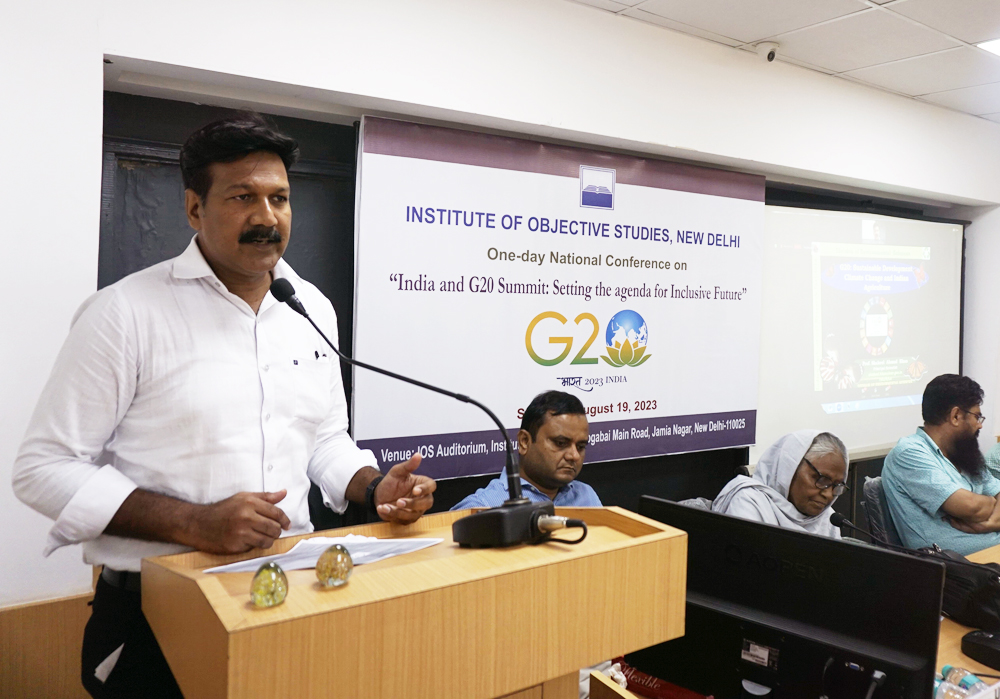
Prof. Shakeel Ahmad Khan from the Institute of Agricultural Research, Pusa, Delhi, said that G-20 would focus on climate change, sustainable development and Indian agriculture, among other things. It would also discuss priorities and the progress in the achievement of 17 goals of sustainable development. It may be recalled that by 2030, 21 targets will have to be achieved. He said that the world community would have to understand climate change in the terms of climate and weather. Greenhouse gases contributed to global warming. It would lead to substantial increase in the temperature of the earth. There was a division of environmental sciences and about 2000 researches on climate change were going on it. He noted that 14 percent gases were coming from agriculture. Since productivity could not be reduced, there was need to raise food production, he stressed.
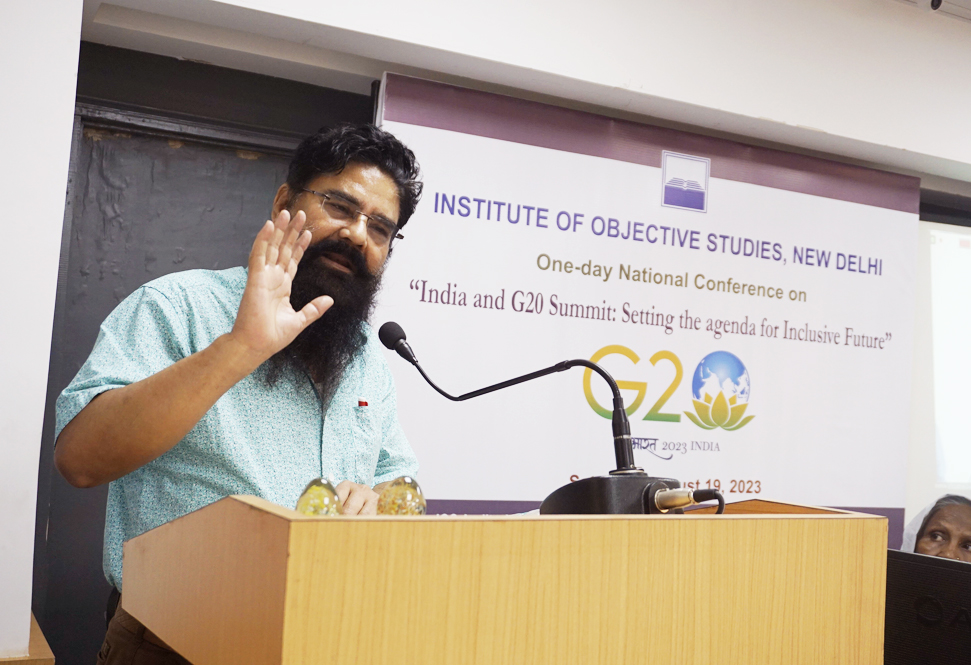
Dr. Zewar Hussain Bhat from S.K. Agricultural University, Kashmir observed that Kashmir was the land of beauty and horticulture was its mainstay. Its share in the GDP was 9.5 percent. Annual turnover of horticulture products like, spices, saffron and zeera worked out to Rs. 50 crore. Horticulture industry was rich. There was a university of horticulture which had started commercial production. More and more people were taking to organic farming. Agricultural demonstrations were being organised in which pest control methods figured prominently, he pointed out. Prof. Mohammad Sohrab from MMAJ Academy of International Studies, JMI, spoke on G-20 and contemporary geo-politics and environment. The nomenclature ‘global community’ could not be construed as had been described by the West. G-20 was comprised of democratic countries to work together in an atmosphere of mutual understanding and cooperation. The group did not have members of NATO (North Atlantic Treaty Organisation) who had vested interests. He said that cultural hegemony of western nations meant their cultural dominance. North Europe was dominating western cultural values. There was duplicity of western countries in dealing with other countries of the third world. In order to furbish their image, they were simply creating media hypes. But the fact of the matter was that the southern part of Europe, Africa and Asia was at the receiving end. There was the monopoly of new production to capture the market. Almost 90 percent global resources were denied to other countries, he remarked.
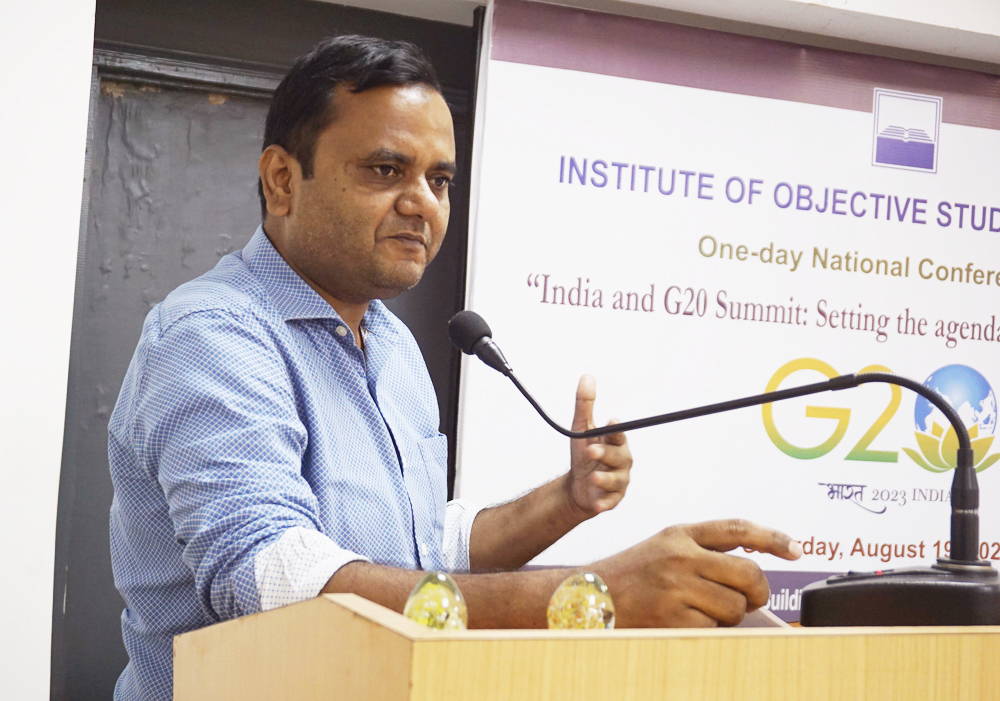
Last speaker of the session was associate professor at the Centre for Interdisciplinary Research in Basic Sciences, JMI, Dr. Imteyaz Hassan, who focused on climate change impact and sustainable development. He explained how climate change could impact the world and how it could change society. People were suffering from pollution and global warming was affecting agricultural production. Temperature of the earth was rising with every passing year. Human health was also becoming vulnerable with the health system being affected. He said that high death rate in the areas where air quality was poor had been reported. Sea level was rising and storms surged. Climate change was impacting socio-economic life of the people. He suggested that the solution to the climate change lay in the reduction of carbon emissions, conservation of energy and water, and reduction of greenhouse gases.
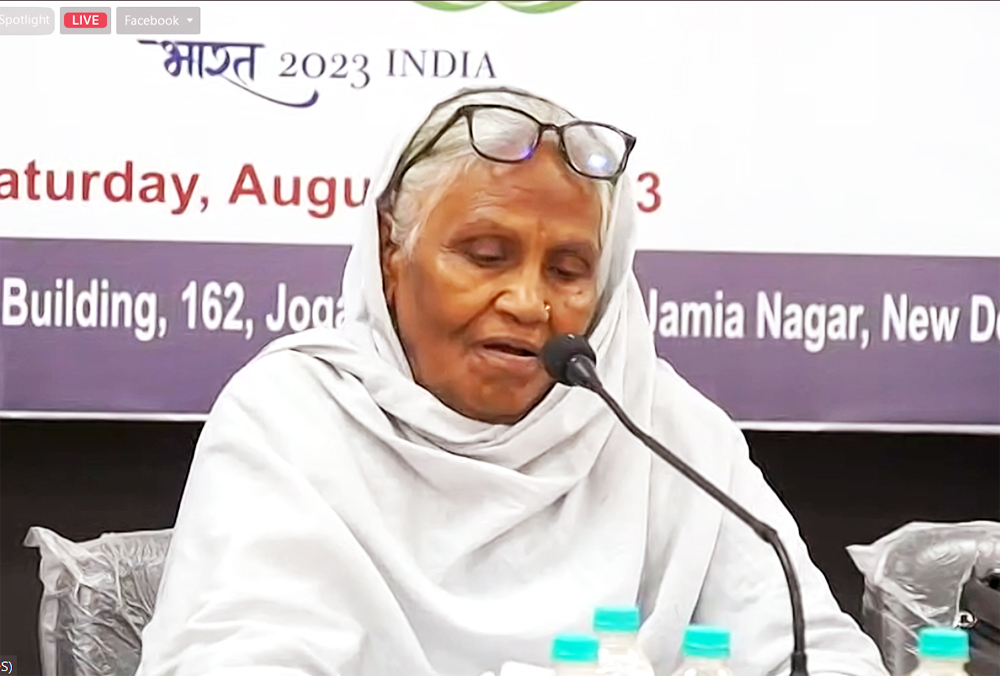
Summing up the session, Prof. Najma Amin, described the summit as election-centered. India was focusing on its ancient past in terms of health, medicine and IT. Promotion of Ayurveda, Indian knowledge system – Vedas, holistic system of medicine, etc., were in the focus. She referred to the meeting recently organised by the ministry of Ayush, government of India in Ahmedabad in which representatives of WHO also participated. Then there was talk of innovation in agricultural economy. She said that the idea of G-20 was conceived in 1966. Referring to the need for peace and harmony on the agenda, she noted that if the West could not ensure peace then how they could do it in India. In this connection, she named USA which was dumping its arms in Ukraine. Similarly, Israel was selling weapons to Germany. This was the election year and inflation had to be checked. War impact, economy, agriculture and climate change were some of the major issues that would be discussed in tha summit. Climate change was destroying agriculture and Russia-Ukraine war had divided the world into two blocs. She questioned the very concept of Vasudev Kutumbkam (world is one family). She said that it sounded sheer hypocracy when one came to know that a particular community was being targeted everywhere, she added.
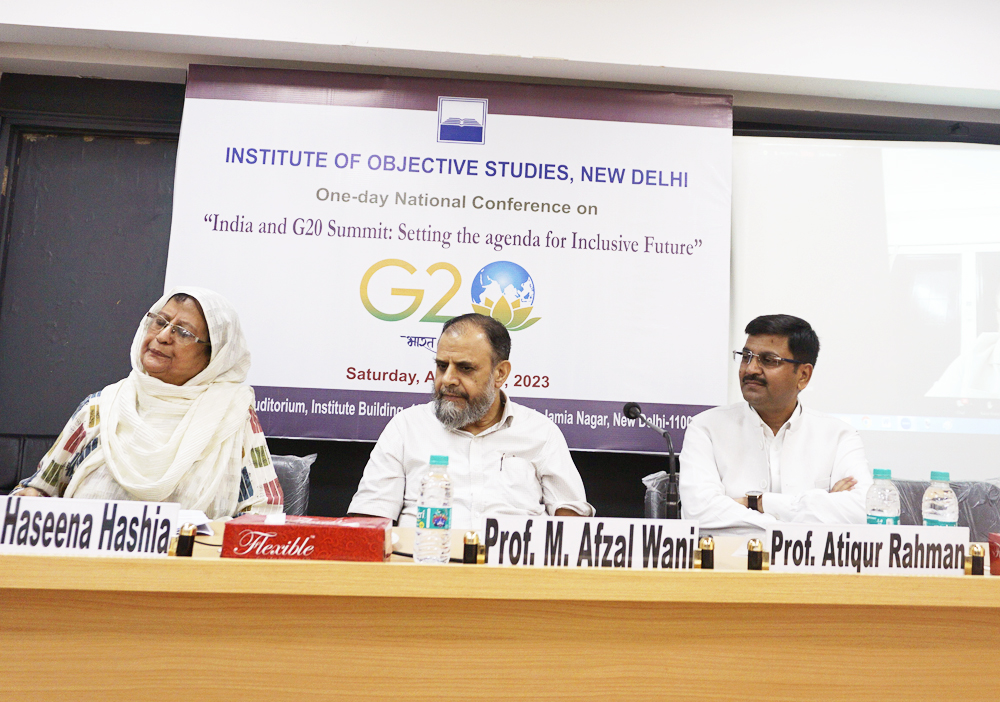
Valedictory Session
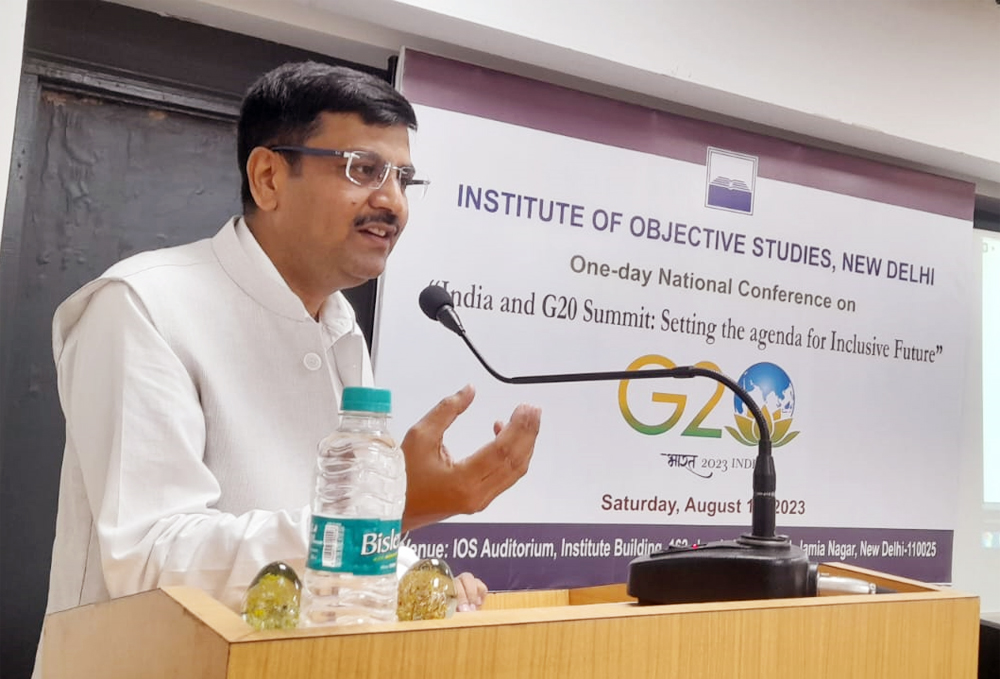
Speaking as the guest of honour, chief proctor, JMI Prof. Atiqur Rahman said that inclusive meant the whole world. Global warming and climate change were the major challenges before the world. Human needs were unlimited whereas the resources were limited. Global connectivity was essential for faster economic growth. He noted that natural environment was under threat due to climate change. Developing countries were facing unchecked urban growth due to migration of people from villages to cities. He held that there would be population explosion by 2030. India’s material consumption was growing sharply. World was faced with the systematic problem of global warming and sustainability of development. In India, per capita energy consumption was very low. Rise of carbon dioxide led to the increase in global temperature which in turn caused rise in the sea level. Wild fire was also adding to global warming. He said that this year’s temperature was hottest in the last 100 years. Global temperature registered phenomenal rise in the last 40 years. Ninety-seven percent scientists agreed that the climate underwent a change in the last 10,000 years. He warned that the world would grapple with water shortage and hunger due to decrease in food production. Growth rate during the first quarter was 6 percent. “We are not looking at the problem, but creating them”, he maintained.
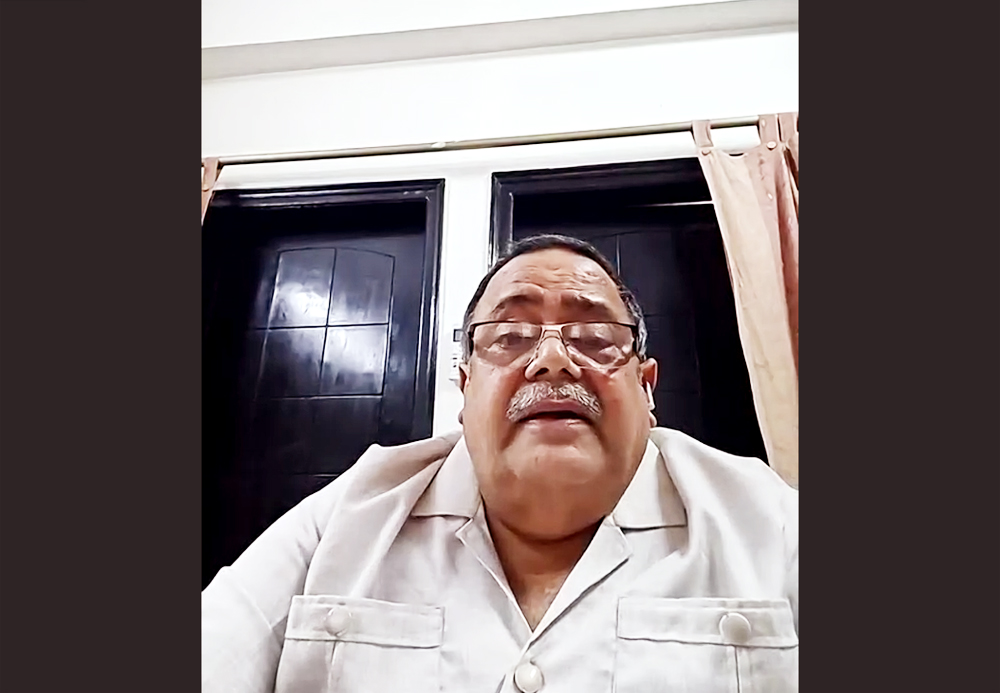
In his valedictory speech, former head of the department of computer science, JMI, Prof. S.A.M. Rizvi, called for setting agenda for home rather than doing it globally. He said that India should showcase her varied culture and achievement in different fields. He held that India did not require transactional leaders but transformational leaders. India should aim for a long-term strategy. India could showcase her activities only when there was a concrete plan. India was the largest democracy and the population should be created into a human resource. There should be job creation and universities should have nothing to do with the job market. Today, politics had become a profession and the politicians were middlemen. He argued that the institutions, like judiciary and election commission should be made answerable. That was the essence of parliamentary democracy. He held that good work had been done in the field of digital resources. Roads in the country were good and disaster management was worth appreciating. He emphasised the need for working with sensitivity and consciousness.
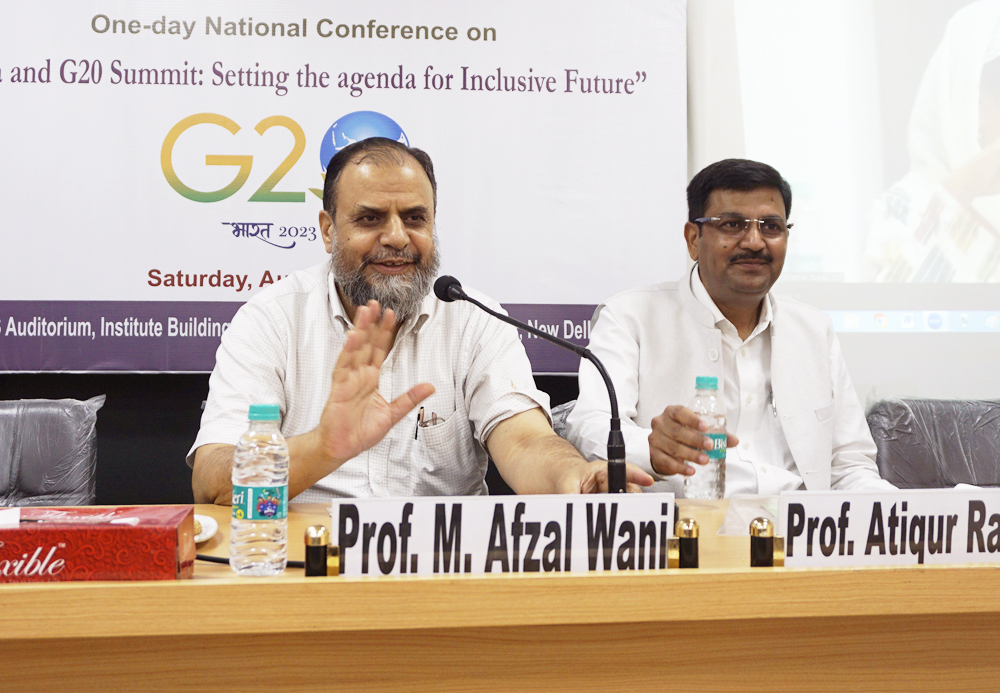
In his presidential address, Vice-Chairman of the IOS, Prof. M. Afzal Wani, stressed the need for understanding the purpose. Only then could one do something relevant. Climate change and sustainable development were the two most pressing problems that the world had to contend with. India had the potential to contribute 75 percent of the world’s healthcare. He said that the agenda for the summit was not clear in the minds of people. He called for making it sure that India was not responsible for climate change. There should be collaboration at every level. Referring to Article 21 of the Constitution, he said that every citizen was guaranteed protection of life and personal liberty. Financial stability was possible only when the system of justice was fair. Democracy was not the rule by majority, but by the rule of law. No country of G-20 would allow anybody to be killed by a group of people. He remarked that if the scientists knew of the causes of climate change, why they did not come out with the solution to it so far. He observed that India had the potential to become the world leader. India was rich in so many things. She could showcase her culture which was rich and varied. She should look forward. Commenting on the advancement of Artificial Intelligence (AI), he said that the world should be told to limit arms race. India should project the best of what she had. That might be judiciary, education and several other things. He held that India had greatness but she was not showcasing it. Those attending the summit were not a group of themselves, but a group of the whole world. He insisted on showcasing peace, equality and happiness through the rule of law.
At the end of the conference, Prof. Haseena Hashia proposed a vote of thanks to the participants.
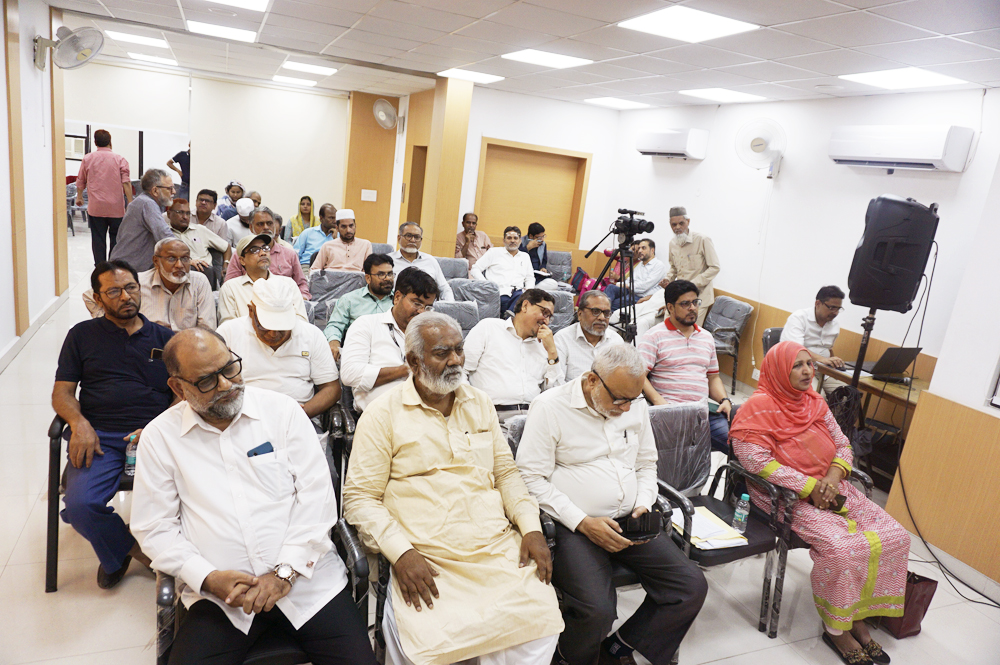
A view of audience
Go Back